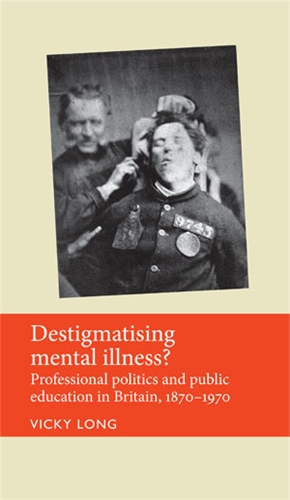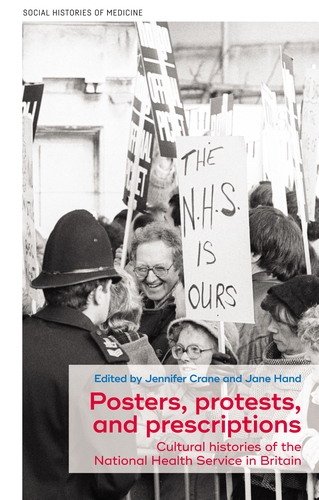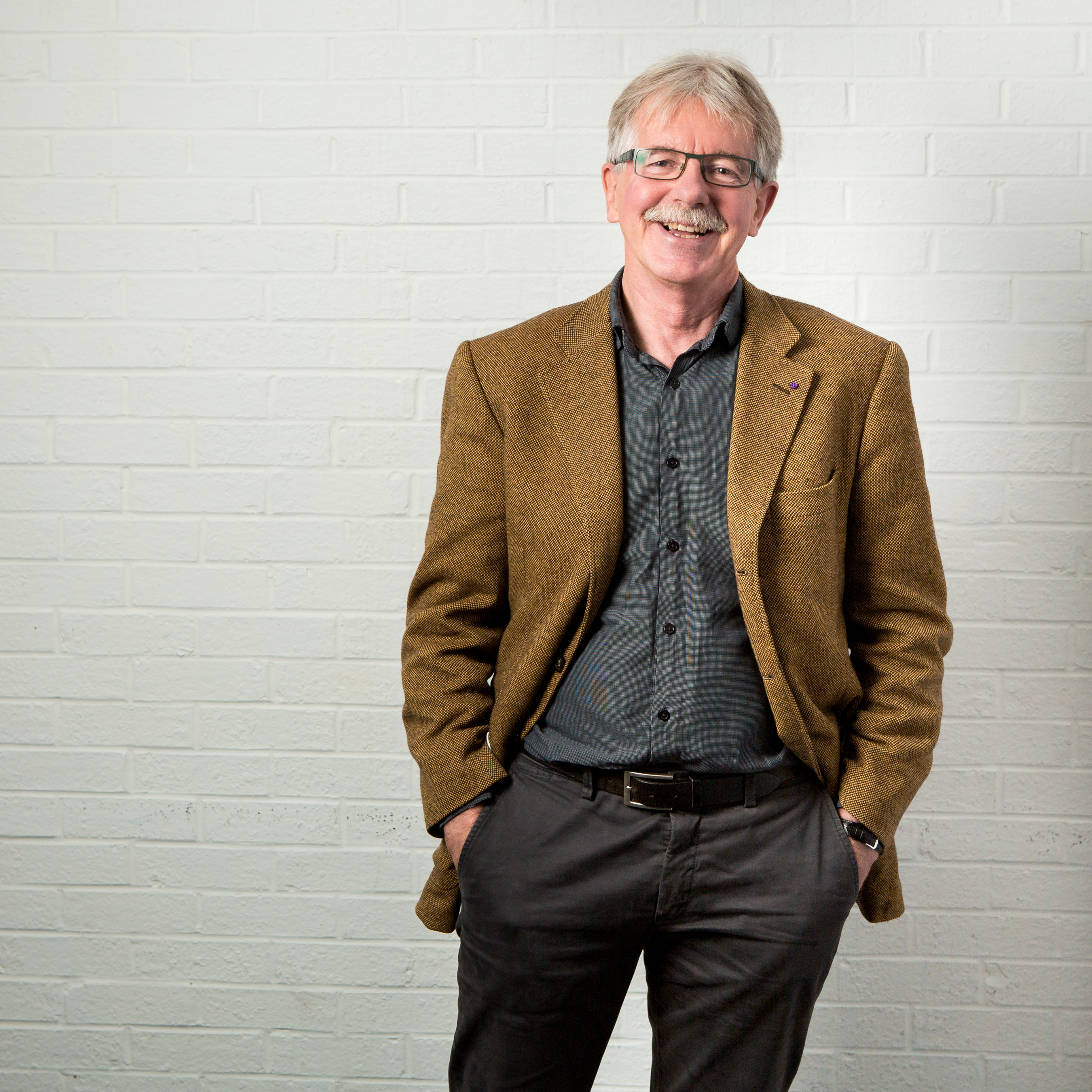Meet Our Anniversary Fellows
We are delighted to announce our Anniversary Fellows.

Dr Vicky Long
Dr Vicky Long's research spans modern British history, labour history, disability history, and health history, interests which originate from her time at Warwick, where she completed an MA and PhD at the Centre for the History of Medicine between 1999 and 2004. She then worked with Hilary Marland and Mathew Thomson as researcher for a project examining the formation of occupational health policy, publishingThe Rise and Fall of the Healthy Factory: The Politics of Industrial Health in Britain, 1914-1960. This book, which examines efforts to transform industrial workplaces from hazardous into healthy spaces, highlights the labour movement’s role in campaigning for occupational health and safety. Vicky has since examined how heavy industries associated with physical illnesses and disabilities also generated mental distress amongst their workers and has published on the tensions between work as a form of therapy, and an activity which potentially damages mental health.
Destigmatising Mental Illness? Professional Politics and Public Education in Britain, 1870-1970, a reworking of Vicky’s doctoral thesis, explores how mental healthcare workers sought to enhance the prestige of their professions by focusing upon the ability of psychiatry to effectively treat acute cases of mental disturbance, thereby reinforcing the stigma attached to serious and enduring mental distress. Vicky is particularly interested in the experiences of people with enduring and severe mental health conditions, and in the use of social therapies in mental healthcare. She has published extensively on post-war mental healthcare, co-editing two books with Despo Kritsotaki and Matt Smith on psychiatric deinstitutionalisation and preventive methods of mental healthcare.
After leaving Warwick, Vicky worked in history of medicine units at Manchester and Glasgow Caledonian Universities. She is currently a senior lecturer at Newcastle University, where she co-founded Newcastle’sMedical Humanities Network, and serves as Director for Research and Impact for theSchool of History, Classics and Archaeology. Her current research project, stemming from a Wellcome Seed Award, uses spina bifida as a case study to explore how the emergence of new systems of valuing life in late twentieth-century Britain exerted a powerful influence over British health policy, devaluing disabled people’s lives.
This year, as an Anniversary Fellow, Vicky will be joining us at Warwick to celebrate CHM's contributions to the wider history of mental health and contemporary British history.


Dr Jenny Crane
Dr Jenny Crane completed her MA and PhD at the Centre for the History of Medicine, University of Warwick, between 2011 and 2015. Following this, she became a Public Engagement Research Fellow on the Centre’s ‘Cultural History of the NHS’ project, which was led by Professors Roberta Bivins and Mathew Thomson. She made significant contributions to our understanding of activism and activists engaging with 'our NHS', and has developed novel methodological approaches to engaging with the public as a tool for creating better and more inclusive history. Her many contributions to the project and to the history of the NHS are listed here.
Jenny is now a lecturer in health geography at the University of Bristol. Her innovative research continues to explore how health behaviours and campaigning are shaped by local, national, and international contexts; how small-scale health activisms can reshape understandings of major social global problems; and the inequalities ingrained into, and reinforced by, such campaigning. She has also – since writing the (Open Access, and well worth a read) book based on her PhD,Child Protection in England: Expertise, Expertise, and Emotion---looked to theorise and describe an ‘expertise of experience’, which emerged and became powerful – though limited – in late twentieth century Britain. Inspired and trained by the Centre for the History of Medicine’s approach, her research is always engaged and collaborative, learning from medical, policy, and public partners, to better understand the affective nature of health ties to state welfare systems. She has written for thei,Metro,History Today, andBritish Medical Journaland has appeared on Dan Snow’sHistory HIIT,Sunday Brunch, andBBC Radio.
This year, as an Anniversary Fellow, Jenny will be joining us at Warwick to showcase her new research and to discuss whether there is a 'Warwick School' in the history of medicine.


Professor Emeritus Colin Jones
Colin Jones is a historian of France, who in his time in Warwick between 1996 and 2006 was one of the group of historians who helped found the Centre for the History of Medicine under Hilary Marland’s direction. After leaving Warwick, he worked at Queen Mary University of London, where he co-founded the Centre for the History of the Emotions. He is a Fellow of the British Academy, former President of the Royal Historical Society, Fellow of the Learned Society of Wales and Officier in the Ordre des Palmes académiques. In 2012 he was awarded a CBE for services to higher education and historical research.
Colin’s research stretches out beyond the history of medicine into the social and cultural history of France, particularly in the 18th century and the French Revolution. He is the author or editor of over 20 books. His most recent monograph, The Fall of Robespierre: 24 Hours in Revolutionary Paris (Oxford University Press, 2021), was awarded the Franco-British Literary Award and is being translated into French, Italian, Spanish, Portuguese and Chinese.
In his time at Warwick, Colin built on earlier work on hospitals, charity and poor relief to co-author with Lawrence Brockliss, The Medical World of Early Modern France (Oxford University Press, 1997), an extensive and in-depth study of health provision in France from the sixteenth century to the French Revolution. He then went on to study the emergence of French dentistry in the 18th century. This led to the publication in 2016 of The Smile Revolution in 18th-century Paris (2016). In the book, Colin places the emergence of a dental profession in Ancien Régime France in conjunction with current ideas of politeness and sensibilité. These produced by the 1780s, he claims, the ‘modern smile’, the acceptance of smiling with an open mouth to reveal teeth, as notably shown in portraits by Elisabeth Vigée de Lebrun. The book analyses how this smile was delegitimated in the 1790s and only remerged in the 20th century.
Since retirement in 2021, Colin lives mainly in Chicago and serves as Visiting Professor in the History Department at the University of Chicago.
